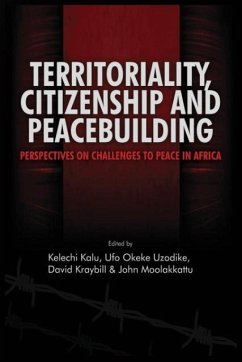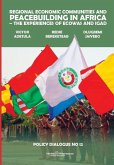Civil conflicts in Africa range from few interstate wars to several intrastate conflicts characterized by secessionist movements, irredentism, coups and counter coups, genocide, wars of liberation to resource-based wars. The varied causes of conflicts in the continent's diverse and complex social formations are seen in ethnic terms and include struggles for economic/environmental resources, poor institutions of governance and issues of identity such as religion, language and racial differences. The core issue addressed in this volume is how to understand and explain the structural and analytical reasons for persistent civil conflicts in Africa. The core assumption is that most civil conflicts in Africa erupt largely because of the nature of state formation in the continent. Other significant variables that are explored as explanations for the persistent instances of civil conflicts in sub-Saharan Africa and the slow efforts at nation-building across the continent include issues of territoriality, climate change, ethnicity, ideological incongruities, institutional problems, the nature of postcolonial state, unreformed governance and economic structures, and corruption. This book also examines some sources of unresolved issues of territoriality and explains their connections to political violence and socio-political and cultural tensions across sub-Saharan Africa. It offers suggestions on how scholarly research and policies could help mediate if not mitigate future territorially-based conflicts in Africa.








